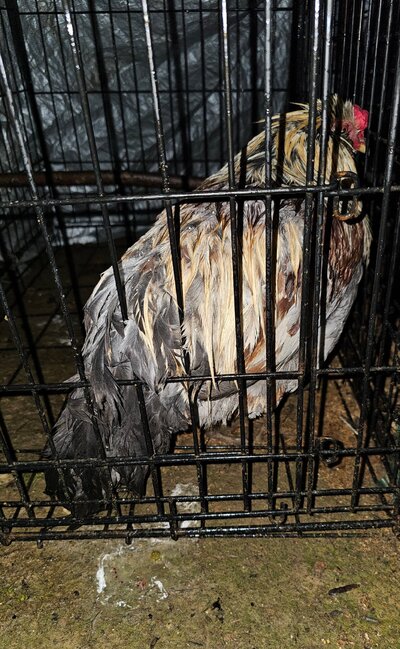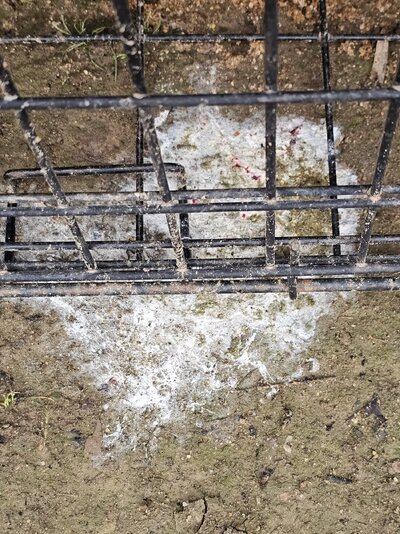Hippiefrog
Songster
We lost our sweet 8 month old(4lb 4oz) Easter Egger cockerel, Patch, last night to suspected coccidiosis. Back story. Two days ago our 4 year old Isa started wheezing. I brought her inside to treat her. She is doing great now(I think her nostrils were clogged with dirt) but I noticed she had mites so I powdered her and the rest of the flock with poultry dust, then cleaned and sprayed the coop with permethrin 10. When I picked up our cockerel to powder him, he vomited a clear/brown liquid. I've seen them spit up before after drinking too much so I didn't think too much of it. That was until a couple of hours later at bedtime. He wasn't roosting as usual but was hiding tucked away in a nesting box. I promptly picked him up to separate him and he again vomited the same liquid. This time there was a lot more though. His crop also felt empty. When i put him in the crate, he ate and drank right away but still refused to roost on the branch I put in there. He just laid by the crate door all fluffed up. When I went to check on him later that night, I saw he had pooped a lot of liquid and saw drops of blood. See attached pic. This made me think of coccidiosis. I didn't have any Corid so my plan was to go to tsc first thing this morning to get some. Unfortunately, our guy was already gone when I went to check on him this morning(see pic of poop found after he had passed) I have since started the whole flock on Corid and all are seemingly fine. I will continue to treat for the 5 days required and will also continue to treat for mites(nasty little things). As you can see in the pic, our weather here in Virginia has been very rainy/muddy. We've had a lot of recent warm days too. I cannot keep the run dry to save my life so it's a muddy wet mess right now. Not sure what i can do about that until things dry up some. My questions are...does this in fact look and sound like coccidiosis? If it isn't, what else could cause bloody poop and vomiting? He was very healthy and I didn't see any mites on him when I went to powder him. The day before he was his usual spastic self, crowing all day as he loved to do, eating, drinking and jumping hens. It was very sudden. With that being said, my last question is, since he was sick, is it unsafe to bury him? I always bury my chickens in the garden but I've never lost one due to an infectious disease or illness, this is our first. He was one of the good guys though and deserves a proper burial. The garden is about 25' from the run and I'm able to bury him very deeply thanks to all of the rain we've had but would this be acceptable or too risky? Please let me know if there's any other questions I didn't answer in my post and thanks in advance!






